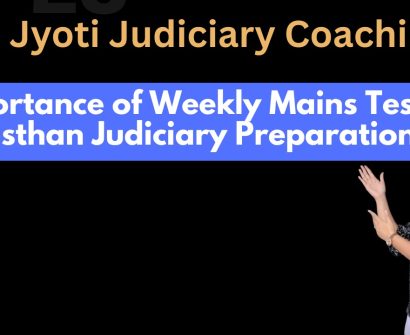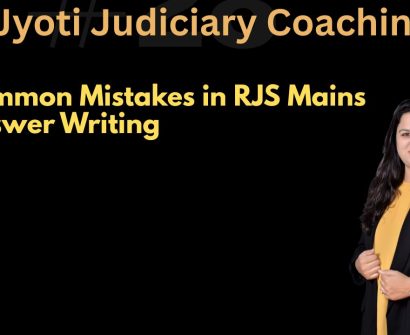Electoral Reforms in India: Strengthening Democracy for a Better Future

Introduction
Electoral reforms refer to changes and improvements made to the electoral system and processes in order to enhance the fairness, transparency, and effectiveness of elections. These reforms aim to ensure that elections are free and fair, and that every citizen has equal access to participate in the democratic process. These include a wide range of measures, including changes in laws and regulations, institutional reforms, and the introduction of new technologies.
Electoral reforms play a crucial role in maintaining the integrity and effectiveness of democratic processes. In India, a vibrant and diverse democracy, continuous efforts are made to enhance the electoral system to ensure free, fair, and transparent elections. This article aims to delve into the constitutional provisions, important Supreme Court judgments, and key reforms needed to further strengthen the electoral system in India.
Constitutional Provisions:
The Constitution of India provides a strong foundation for conducting elections in a democratic manner. To illustrate-
- Article 324 empowers the Election Commission of India (ECI) with the responsibility of superintendence, direction, and control of the entire electoral process. The ECI is vested with wide-ranging powers to ensure fair elections, including the power to conduct polls, register political parties, and enforce the Model Code of Conduct.
- Article 19 guarantees the right to freedom of speech and expression, which is crucial for political campaigning and public discourse.
- Article 21 ensures the right to life and personal liberty, which includes the right to participate in elections as a voter or candidate.
Important Supreme Court Judgments:
Over the years, the Supreme Court of India has played a pivotal role in shaping electoral reforms through its landmark judgments. Some of the significant judgments that have had a lasting impact on India’s electoral system are:
- Mohinder Singh Gill v. Chief Election Commissioner (1978):
In this case, the Supreme Court held that free and fair elections are a basic feature of the Constitution. It emphasized that electoral malpractices such as booth capturing, bogus voting, and intimidation must be curbed to maintain the sanctity of elections.
- Association for Democratic Reforms v. Union of India (2002):
This landmark judgment mandated that candidates contesting elections must disclose their criminal antecedents, assets, and liabilities, educational qualifications, and other relevant information. This decision aimed to promote transparency and empower voters with essential information about candidates.
- People’s Union for Civil Liberties v. Union of India (2003):
The Supreme Court directed the ECI to introduce the option of “None of the Above” (NOTA) on electronic voting machines (EVMs). This judgment recognized the importance of the right to reject all candidates and provided voters with a meaningful choice even if they were dissatisfied with the available options.
Important Reforms Needed:
While India has made significant strides in electoral reforms, several key areas require attention to further strengthen the democratic process. Some important reforms that need to be implemented are:
- Campaign Finance Reforms:
There is a pressing need for greater transparency and accountability in political party funding. Stricter regulations on political donations, disclosure of sources of funding, and auditing of party accounts can help curb the influence of money power in elections.
- Criminalization of Politics:
To ensure that elected representatives have clean backgrounds, efforts should be made to expedite pending criminal cases against politicians. Additionally, stricter screening mechanisms and disqualification criteria for candidates with criminal records should be put in place.
- Electoral Bonds:
The introduction of electoral bonds has raised concerns about transparency in political funding. A comprehensive review of this system is necessary to address potential loopholes and ensure that it does not compromise the integrity of the electoral process.
- Voter Education and Awareness:
Enhanced voter education programs can empower citizens with knowledge about their rights and responsibilities. Promoting voter registration, encouraging higher voter turnout, and combating voter apathy through awareness campaigns are crucial steps towards a more participatory democracy.
- Use of Technology
Leveraging technology can streamline various aspects of the electoral process, including voter registration, candidate nomination, and result declaration. The ECI should explore innovative solutions such as online voter registration, blockchain-based voting systems, and real-time result reporting to enhance efficiency and transparency.
- Electoral Dispute Resolution:
The timely resolution of electoral disputes is crucial for maintaining public trust in the electoral process. Establishing specialized fast-track courts or tribunals to handle election-related cases can expedite the resolution of disputes and ensure justice is served.
- Election Funding for Independent Candidates:
Currently, independent candidates face significant challenges in funding their election campaigns. Introducing mechanisms to provide financial support to independent candidates, similar to what political parties receive, can level the playing field and encourage greater participation from non-affiliated individuals.
- Online Voting for NRIs
India has a large population of Non-Resident Indians (NRIs) who are unable to physically participate in elections. Exploring the possibility of implementing secure online voting systems for NRIs can ensure their right to vote is upheld and their voices are heard in the democratic process.
- Electoral Reforms at the State Level
While electoral reforms are primarily implemented at the national level, it is crucial to address issues specific to individual states. Each state may have unique challenges and requirements, and tailoring reforms to address these local issues can further strengthen the democratic process at all levels of governance.
- Appointment Process
Introduce a more transparent and participatory process for the appointment of Election Commissioners. This could involve the formation of a bipartisan committee comprising representatives from political parties, civil society organizations, and judicial experts to recommend suitable candidates for the position.
- International Cooperation
Foster greater collaboration and exchange of best practices with international election management bodies to learn from their experiences and adopt innovative approaches to election administration. This would help India benefit from global expertise and improve its electoral processes.
Conclusion:
Electoral reforms are essential for the continued growth and strengthening of India’s democracy. The constitutional provisions, important Supreme Court judgments, and necessary reforms discussed in this article provide a roadmap for a more transparent, inclusive, and accountable electoral system. By addressing the existing challenges and embracing new technologies, India can ensure that its citizens have faith in the democratic process and actively participate in shaping the nation’s future.
Significance of the Topic
Electoral reforms have become a topic of contemporary relevance because of the recent Supreme Court’s pronouncements in election matters. Therefore, the topic is important for all judiciary examinations. Judiciary coaching suggests that this topic be rigorously prepared by the students. Judiciary coaching also suggests that the topic be prepared for the essay.









